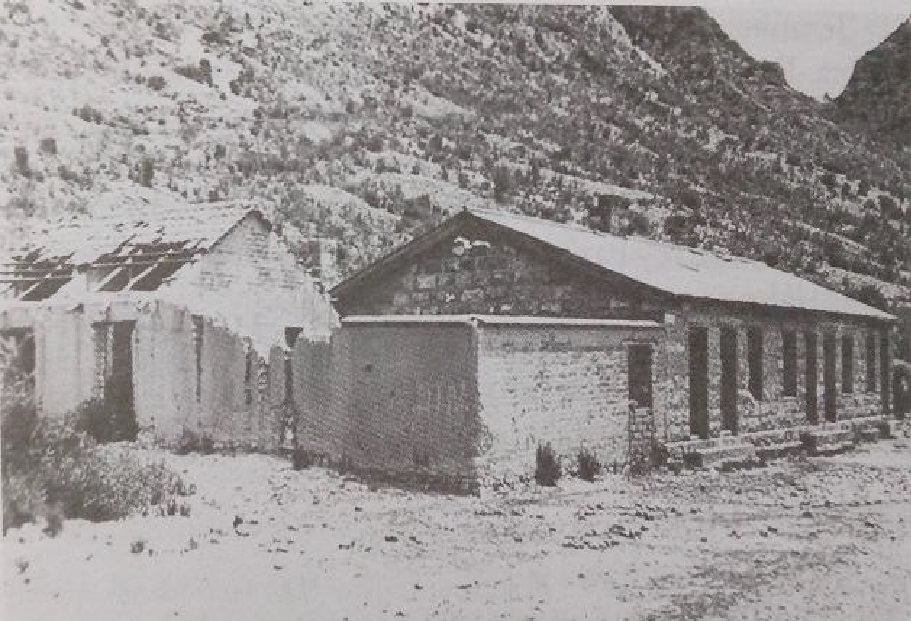

EVO Y EL DÍA DE LOS DIFUNTOS
Por Edgar Ramos Andrade Dixit (*) / ANC, El Alto-Bolivia, 1 noviembre 2024
1. La serie que hoy comenzamos tendrá tres artículos. Todos Santos nos recuerda al golpe de Estado de Alberto Natush, aquel desquiciado coronel que fue ministro de Agricultura y Asuntos Campesinos del dictador Hugo Banzer (1971-1978).
2. Banzer sufría patología de prorroguismo. Tras 7 años de cruel dictadura, contra gente humilde sea o no dirigente campesino o minero, a mediados de 1977 afirmó que se quedaría hasta 1980. El 28 de diciembre 1977 cuatro mujeres mineras, con sus hijos, encabezaron una huelga en el piso 2 del Arzobispado La Paz, muy cerca de plaza Murillo.
3. Luzmila Rojas Rioja, Nelly Colque Aramayo, Angélica Romero, y Aurora Villarroel pudieron más que los dirigentes universitarios –varios miristas y del PCB– quienes prefirieron festejar el fin de año, y que los presos políticos y exiliados no vuelvan a casa.
4. Banzer –el asesino del nefasto ranger Andres Selich– tuvo que decretar amnistía política y acelerar la elección de julio 1978 pero permitió que su candidato (Gral Juan Pereda) utilice dinero y bienes estatales para hacer fraude electoral: hubo más votantes que inscritos en el padrón electoral. Los pillaron flagrantes, y Pereda tuvo que hacerle golpe a Bánzer…
5. En agosto de 1979, en el Parlamento, el diputado Marcelo Quiroga leyó el pliego acusatorio de juicio de responsabilidad contra Banzer y presentó 200 cargos (delitos) entre ellos, tráfico militar de tierras en Huanchaca, o el aporte con armas y dólares de la familia Gasser y empresarios alemanes para el golpe militar de agosto 1971.
6. El 1 de noviembre 1979, Natush frenó ese juicio –que está detallado en el libro “Juicio a la dictadura” – y le hizo golpe militar-parlamentario al presidente Walter Guevara; tuvo apoyo de los diputados: Guillermo Bedregal, Edil Sandóval y otros que luego se reciclaron.
7. Un reciclado fue Bedregal, que en la década 1990, presidía la Cámara de Diputados, y andaba todo el tiempo con su collar de crucifijo que recorría los nerviosos dedos de su mano derecha, en sesión parlamentaria o ante la prensa. Era el fantasma del juicio político.
8. El prorroguismo de Banzer volvió en 1997 cuando el sádico ex dictador fue elegido presidente, inclusive con votos de trabajadores mineros que tenían ahorros en FINSA y que el banzerismo prometió devolver.
9. Al final, Banzer quedó impune por los delitos de su dictadura, entre ellos narcotráfico junto al nazi Klaus Barbie (su asesor) y su esposa Yolanda; este delito no fue investigado aun y es imprescriptible. Tuvo que acortar su mandato en el año 2001. El cáncer lo juzgó. No le perdonó.
10. En Todos Santos 2024, Evo parece seguir huellas de dictadores aquí descritos. Sin embargo, por favor, cualquier semejanza,entre: Natush, Banzer y Morales, es pura coincidencia.
(*) Edgar Ramos Andrade es escritor.
= = =
English
EVO AND THE DAY OF THE DEAD
By Edgar Ramos Andrade Dixit (*) / ANC, El Alto-Bolivia, November 1, 2024
1. The series that we begin today will have three articles. Todos Santos reminds us of the coup d'état of Alberto Natush, that deranged colonel who was Minister of Agriculture and Peasant Affairs under the dictator Hugo Banzer (1971-1978).
2. Banzer suffered from prorogation pathology. After 7 years of cruel dictatorship, against humble people, whether or not they were peasant or mining leaders, in mid-1977 he stated that he would stay until 1980. On December 28, 1977, four mining women, with their children, led a strike on the 2nd floor of the La Paz Archbishopric, very close to Plaza Murillo.
3. Luzmila Rojas Rioja, Nelly Colque Aramayo, Angélica Romero, and Aurora Villarroel could do more than the university leaders – several from the Miristas and the PCB – who preferred to celebrate the end of the year, and that the political prisoners and exiles did not return home.
4. Banzer – the murderer of the nefarious ranger Andres Selich – had to decree political amnesty and accelerate the July 1978 election but allowed his candidate (General Juan Pereda) to use money and state assets to commit electoral fraud: there were more voters than registered in the electoral roll. They were caught red-handed, and Pereda had to hit Bánzer...
5. In August 1979, in Parliament, deputy Marcelo Quiroga read the indictment for the liability trial against Banzer and presented 200 charges (crimes), including military trafficking. of land in Huanchaca, or the contribution with weapons and dollars from the Gasser family and German businessmen for the military coup of August 1971.
6. On November 1, 1979, Natush stopped that trial – which is detailed in the book “Trial of the Dictatorship” – and carried out a military-parliamentary coup against President Walter Guevara; He had support from the deputies: Guillermo Bedregal, Edil Sandóval and others who were later recycled.
7. A recycled person was Bedregal, who in the 1990s presided over the Chamber of Deputies, and walked around all the time with his crucifix necklace that he ran through the nervous fingers of his right hand, in a parliamentary session or before the press. It was the specter of impeachment.
8. Banzer's prorogation returned in 1997 when the sadistic former dictator was elected president, even with votes from mining workers who had savings in FINSA and which Banzerism promised to return.
9. In the end, Banzer went unpunished for the crimes of his dictatorship, including drug trafficking with the Nazi Klaus Barbie (his advisor) and his wife Yolanda; this crime has not yet been investigated and is imprescriptible. He had to shorten his term in 2001. Cancer judged him. He didn't forgive him.
10. In Todos Santos 2024, Evo seems to follow in the footsteps of dictators described here. However, please any similarity between: Natush, Banzer and Morales, is purely coincidental.
(*) Edgar Ramos Andrade is a writer, chaco.amazonia@gmail.com